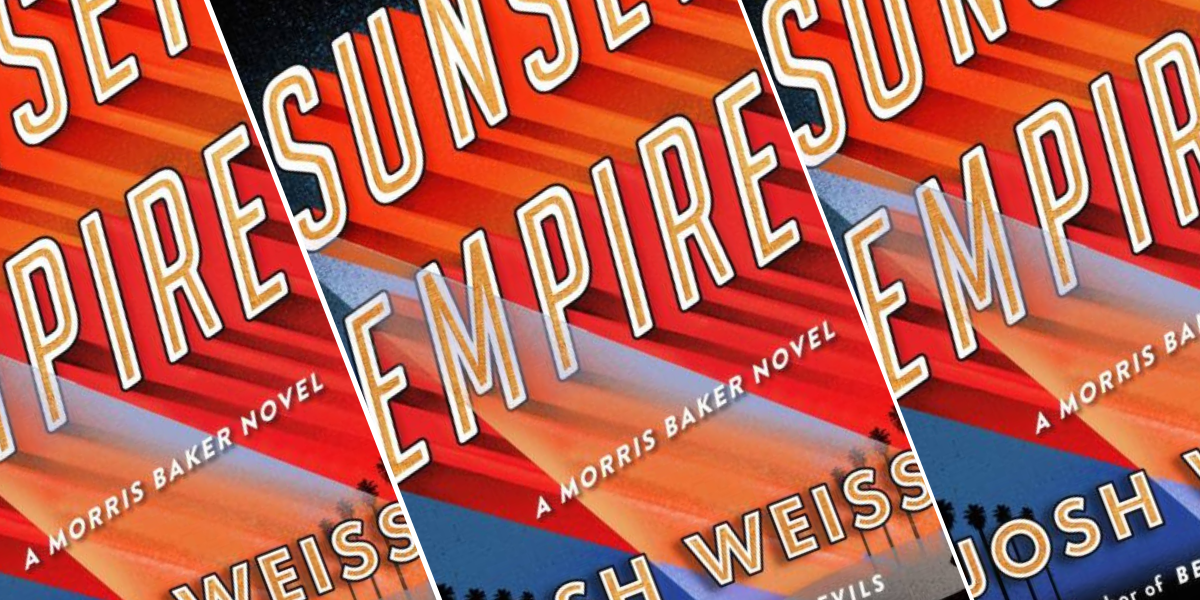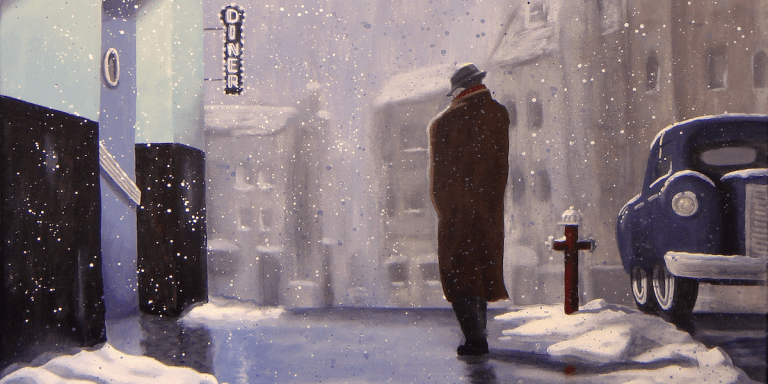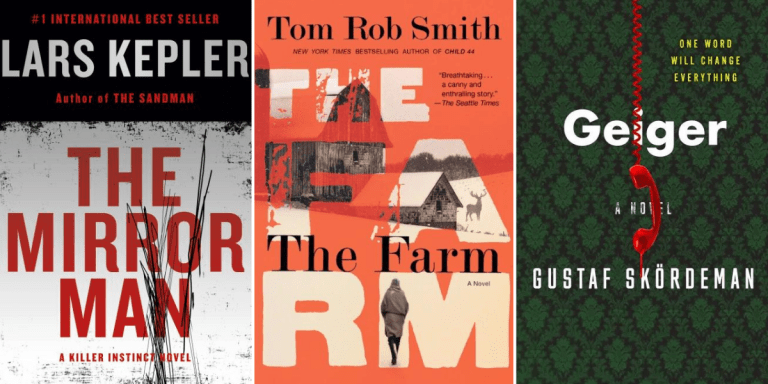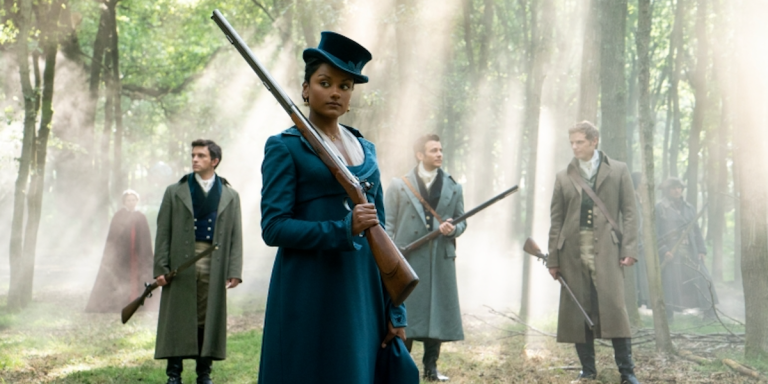Read the Excerpt: Sunset Empire by Josh Weiss

PROLOGUE
I will defend Korea as I would my own country—just as I would California.
—General Douglas MacArthur
We’re gonna nuke each other up, boys, ’til old Satan stands impressed.
—Matt Maltese
December 1, 1959
They called him “The Tiger” because of his ravenous devotion to the cause. He approved of the moniker, but not for the reasons they provided. He approved of the title because it reminded him of the bedtime stories his mother would often recite to him as a boy.
Korean fairy tales always began not with “Once upon a time . . . ” but with “Back when tigers smoked…” Tigers did not smoke, of course. The traditional opening signified the start of a fantastical journey— one that could never take place in the real world.
The memory of his mother’s voice enveloped him, soft and comforting like a beloved childhood blanket.
His true name was . . . wait, what was his real name . . . ? William! Yes, William Yang. That’s right. How could he have forgotten? William Yang, a near-lifelong native of Los Angeles and a…wait, what did he do for a living? Where was he? A pleading, panicked voice that seemed to come out of nowhere screamed: “Wake up, William! Wake up!”
The Tiger shook his head. His mind was just a tad foggy, but that was to be expected with the momentous job sitting before him. A job that was mere moments away from being carried out.
Nothing else mattered, except the cause.
Soft Christmas music brought him back to the hustle and bustle of the department store. “Chestnuts roasting on an open fire…Jack Frost nipping at your nose…” crooned Nat King Cole in a tender, fire-side tone. Men and women, accompanied by giggling children, cast murderous, side-eyed glances in his direction as they went about their early holiday shopping.
He was the enemy to them.
It made no difference that he’d been raised in this country—had spoken its language, observed its customs, and fought for its values. The shape of his eyes was reason enough in their minds to loathe him, to lump him in with those fighting a conflict an ocean away.
He walked freely among them, and yet he was not free. Not when his very rights as an American were under attack. Not when people who looked like him were ripped from their beds and taken away, never to be seen again. It was why he’d traveled across that vast ocean to his ancestral homeland, where he had found glorious enlightenment. Those few months spent on the training grounds just outside Pyongyang— Pyongyang? Do you hear yourself? You’ve never been to Pyongyang! Wake up!—had imbued him with a profound, unshakable sense of purpose. Meaning had finally emerged from the infinite void of chaos.
He plunged his hands into the deep pockets of his heavy overcoat, pretending to innocently browse a display of neckties. An uncharacteristic chill had recently settled over the city of Los Angeles, and as such, his winter wear would not appear out of place to any casual observer. Fortune had smiled upon him in the form of steely clouds and swirling mists.
Thumbing the hidden detonator within his pocket, The Tiger experienced a rush of excitement at the thought of plunging it down in just a few minutes’ time. The fifty pounds of plastic explosive strapped to his chest felt light as a feather.
The instructors in Pyongyang had taught him why it was necessary to strike before their culture was completely wiped from existence. And from there, the training began—from morning until night. What did that training entail exactly, William? What were the names of your instructors? Can you even remember? No, you can’t! Wake up!
He didn’t need to recall details of his training to grasp his ultimate purpose. All he knew was that they’d pushed him to his absolute limits and then farther still until there was no doubt of his loyalty to the cause. That he was indeed worthy of being called “The Tiger.”
And when it became clear that his yearning for action was insatiable, they chose him for a mission that would change everything. They taught him the rudimentary mechanics of homemade explosives and, when the time was right, smuggled him back into the United States to do what was necessary. Nothing else mattered, except the cause.
“They know that Santa’s on his way . . . bringing lots of toys and goodies on his sleigh . . .”
These people knew nothing of suffering; what it was like to have your homeland defiled by a viral interloper. How he hated them. They went about their pathetic little lives as if thousands of others weren’t being starved and slaughtered in their name. They bought suits and brassieres, draped holly and tinsel over Christmas trees, while their own soldiers razed towns, raped innocent women, and haphazardly dropped firebombs of skin-melting napalm. Children screaming, their flesh dripping like wax sculptures under heat lamps.
Every American was complicit in the sacking of Korea—a bloody conflict that refused to end for eight long years. A string of Pyrrhic victories eroding American morale and bolstering Korean resolve.
Through a refusal to yield, to acknowledge when they were licked, President McCarthy and General MacArthur had unintentionally unified most Koreans under the banner of Communism. The concept of North versus South no longer mattered. Bickering over economic ideologies became immaterial in the face of an invading force too stubborn to leave.
Still, The Tiger thought to himself, McCarthy isn’t as foolhardy as he once appeared. Despite the president’s constant threats of exercising “the nuclear option,” he had yet to provide the go-ahead—perhaps afraid of what dominoes he might knock over by eradicating a good chunk of East Asia. No, McCarthy was being sensible. But how long would that sense last? How high would the body toll need to rise until the president decided to play the most devastating ace in the deck?
If something wasn’t done to stem the flow soon, the poison of war, of bigotry—and yes, radiation—would bleed across the generations, perpetuating an endless cycle of death and violence. And not just in Korea, but in Indochina as well. Emboldened by America’s recalcitrance to yield to the inevitable, France continued its own unlawful occupation of Vietnam, Cambodia, and Laos. It mattered not how many soldiers were lost to the guerrilla fighters, who had nothing left to lose and everything to gain. Pride superseded bloodshed.
The United States was the illness, and The Tiger was the fever that would bring clarity once it broke. He would be the guiding light, the great liberator, the only person gifted with sight in a world that would rather gouge out its own eyes than see things for what they were. They would throw parades in his honor all over the homeland—from Pyongyang to Busan.
“Tiny tots with their eyes all aglow . . . will find it hard to sleep tonight . . .”
A young boy and girl suddenly emerged from a rack of maroon dinner jackets, playing a harmless game of tag. Staring after them, The Tiger was reminded of his youth. He had once played a similar game with a girl called Evelyn, but for some reason, he could not ascribe meaning to the name. Who was she? Yet again, the strange voice resurfaced inside his head: “Please, William! This isn’t you! You need to snap out of it before you do something you regret! You need to call Evelyn! Tell her everything! It’s not too late!”
Tears that didn’t feel like his own raced down his cheeks. He felt strangely torn and almost gave in to the faint voice, almost took his finger off the hidden trigger and walked away. Almost. The hesitation was painful and tiring, like trying to swim against a raging tide in the middle of a storm.
And now there was a second voice—one wholly disconnected from his own. “Go ahead, William,” it said, cutting through his brain tissue with the ease of a white-hot kitchen knife. “Do what we trained you to do. You will be doing your homeland a great service, ja? These people are the enemy, remember? Go ahead…Do it…Do it…Do it…”
Szell…Szell…Szell… went his mind in monotonous, meaningless repetition. Instinctive word association turned it into a pun on capitalism: Buy…Buy…Buy…
“It’s a lie!” bleated that other William Yang. “You’re an American, William! You of all people know what this will do to Evelyn, to our parents, to all our friends! Everyone that looks like us! For fuck’s sake, WAKE UP!”
“Enough of this,” The Tiger muttered, unaware that he was cradling his pounding head in his hands. Slowly, he walked to the middle of the crowded showroom, spreading his arms out wide. The anguished version of William weeping inside his head belted one last futile scream—“NOOO!”—while that other voice happily exclaimed in a language he did not speak.
“DEATH TO AMERICA! LONG LIVE KOREA!” The Tiger boomed. He beheld a sea of confused faces before depressing a thumb down on the bomb’s detonator.
Twenty-six people, including twelve children, were blown to pieces in an instant.
“Although it’s been said many times, many ways…Merry Christmas to youuuu . . .”
PART I
December 25, 1959
McCarthyism is Americanism with its sleeves rolled.
—Senator Joseph McCarthy (R-OH)
Don’t it make you angry the way war is dragging on?
Well, I hope the president knows what he’s into, I don’t know.
Oooh, I just don’t know . . .
I can no longer keep my blinds drawn And I can’t keep myself from talkin’.
—Chicago
—The Mamas and the Papas
CHAPTER 1
She walked into his office with a swagger that suggested an easy payday.
Until the door opened with a gentle creak, he’d been enjoying a friendly game of chicken with a bottle of peach schnapps sitting atop the desk, waiting to see who would blink first. The bottle was on the verge of pulling out another spectacular victory (with only half its sloshing contents left, it’d been winning a lot lately), but it wouldn’t have a chance to gloat this time.
The bottle was shoved into the bottom desk drawer—with a speed that suggested he’d done this many times—before the woman could even notice she was about to engage the services of a struggling alcoholic. That little chestnut usually turned potential customers away. Ha! Chestnut. God bless us, everyone, he thought to himself, wondering what could make a person desperate enough to come see him on the merriest day of the year.
Her sultry voice was like a mug of hot chocolate spiked with whiskey. Or a bit of schnapps. “You are Morris Baker?” she asked. “The private detective?”
“That’s what it says on the door, ma’am,” Baker responded, steepling his fingers together. “If not, then I’m probably in the wrong office.”
He pointed to the door, whose frosted glass proclaimed: morris e. baker, private investigations. The little joke was meant to put clients at ease, but it didn’t seem to work on this one. Morris Baker had learned to read body language as a cop and saw an almost imperceptible twitch as the woman’s muscles tensed with…what? Nerves? Indignation? Sure, many patrons came in here begrudgingly, furious that a Jew was the last avenue left to them. But sometimes, it was only when you were out of choices that you realized why they’re called the Chosen People.
“They say you’re the person to see when you’ve got nowhere else to go,” said the woman.
“So I’ve been told,” he said, abruptly seized by a violent coughing fit. “Sorry,” he said, dabbing at his lips with a handkerchief. “Just a slight cold, is all. Please, sit . . .”
The woman did not comply, took an apprehensive step backward. “They say there’s some sort of flu going around,” she whispered as though it were a juicy piece of hair salon gossip. “From that Yang terrorist, you know? He brought it over here as a”—she screwed up her face in concentration, obviously trying to remember something— “a biological weapon. That’s it.”
“I wouldn’t know anything about that,” Baker lied, knuckles curl- ing behind the desk. He tried to keep a smile against the ugly piece of HUAC propaganda she’d swallowed like a gluttonous trout. “Please sit, Miss…?”
“It’s Mrs.,” she corrected him, sitting down in the uncomfortable wooden chair reserved for optionless schlimazels and lifting a silken veil from her young and pretty face. Baker couldn’t help but notice a poorly concealed shiner under the woman’s left eye. “Mrs. Ann Kissinger,” she said.
“My apologies,” said Baker. “How can I help you today, Mrs. Kissinger?”
“It’s my husband, Henry. He’s gone missing.”
“I see.” Baker coughed again and opened his notebook to a fresh page, grabbing a fountain pen off the inkwell. “And your last name, that’s with two s’s?” Ann nodded and he scribbled the name Henry Kissinger at the top of the page. “Now,” Baker said, looking up, “I’m going to ask you a question, Mrs. Kissinger, and I don’t want you to be offended in any way. It’s something I ask all potential clients.”
“Go ahead, Mr. Baker. Ask your question.”
“Well, like you said upon your arrival, I’ve got a certain reputation for taking on hopeless cases. I’m curious what makes finding your husband worth my time. Why, for instance, have you not gone to the police?”
He held his breath, desperately hoping she wouldn’t get up and walk out in a huff. Baker couldn’t afford to lose this one. The cases weren’t exactly pouring in like they used to, and his meager savings (critically damaged by the forfeiture of an LAPD pension) were alarmingly close to drying up like a sun-baked watering hole. That stack of overdue bills at his apartment was starting to become a problem he couldn’t ignore for much longer.
“Isn’t it obvious?” Ann asked. She pulled out a cigarette and Baker leaned over the desk to light it for her with a quickly struck match. He sat back, chair creaking, and pulled out his own pack of Kools. They both took in lungfuls of smoke before Ann continued, “Tell me, Mr. Baker—do you have all of your potential clients frisked as they walk in the door?”
“Mr. Greenbaum is simply here for…a little added security,” he said. “One can never be too careful these days.”
No need to mention that he’d seriously pissed off a cabal of former Nazi scientists the previous year by driving a switchblade into their leader’s back (the knife in question had been taken from a dead Huey, which he now kept as a talisman of good luck). Baker hated looking over his shoulder all the time, but if the Black Symphony was out for revenge—and that seemed more of a when than an if—he didn’t want to be caught with his pants down. He wouldn’t roll over for those Kraut pricks ever again.
Hershel Greenbaum guarded the office during business hours, and when he wasn’t around…well, Baker’s snub-nosed .44 Magnum was never too far away from his hip. Acquiring gun and PI licenses might’ve been a lot harder for another Yid hoping to get into the gumshoe business, but Baker was lucky enough to still have a friend in William Parker, the influential chief of the Los Angeles Police Department.
“Well, there you are,” puffed Mrs. Kissinger, exhaling a perfect smoke ring from between her lips. “My husband and I are Jewish just like you, Mr. Baker. And last I checked, we aren’t exactly the most popular kids on the playground these days.”
“I understand,” said Baker, smiling wanly.
Most, if not all, of his clients were people who had been antagonized and discarded by the McCarthy administration: Jews, gays, Koreans, Chinese, and the worst of them all—Communists. Morris Ephraim Baker was the man to visit when you didn’t want to risk involving the ruthless inspectors of the House Un-American Activities Committee, who regularly liked to wipe their asses with the Bill of Rights.
“In any event, I’d be happy to take on your case, Mrs. Kissinger,” Baker continued, and Ann nodded her silent appreciation. “May I ask where you saw your husband last?”
“At home. Before he left.”
“And home would be…?”
“Washington, DC.”
“So you’re not local?” Baker asked, putting pen to paper again. “No,” said Ann. “Henry works as a consultant for the State Department.”
Baker dropped his pen and looked up in surprise. “Sorry for asking, but your husband is a Jewish man working in the State Department? I mean to say it’s not something you hear in today’s . . . uh . . . climate.”
“An astute observation, Mr. Baker,” Ann said. “Yes, it is highly unusual, but Henry is good friends with the vice president and that kept him immune from McCarthy’s purge.”
Baker picked up his pen. “I see. And what does he do for the State Department?”
“Advises on policy relating to East Asia,” she said. “I can tell you he’s had his hands full after what that young man did, blowing himself up like that.”
Ann Kissinger shuddered dramatically.
“Yes, it was quite horrible,” Baker replied, not wishing to dwell on the round-the-clock HUAC roundups of Korean-Americans that had been taking place nearly every day since William Yang decided to go kablooey in a department store. He pressed on: “If your husband is close with Nixon, then why not ask for the vice president’s help in finding him? Surely the government has better resources than I do.”
Ann looked past Baker and out the office window. The dreary, over- cast weather had not changed once in three weeks—not since Yang. “I tried that already,” she said softly. “Richard told me not to worry. That was a little over a week ago. You see, Mr. Baker, my husband may be valued for his intellect, but he’s still not good enough in their eyes. He grew up in Germany and escaped a few years after the Nazis came to power. It broke his heart when McCarthy was elected. He never thought he’d see history like that repeat itself here.”
“I understand,” said Baker, experiencing a slight feeling of distaste for the missing Henry. If the man had seen the rise of Hitler firsthand, why would he willingly work for an administration that owed so much of its vile policies to the Third Reich? If he was being honest with himself, though, Baker knew the answer to that question; knew exactly what it was like to partake in a system that actively called for your destruction. Who in the hell was he to judge Kissinger?
An oven of scorching flames threatened to burn down the thin veil that separated him from the haunted past. A past filled with burning corpses, shoveled ashes, lips stained blue.
Feeling like he might be on the verge of a seizure, Baker reached into a trouser pocket and pulled out a bottle containing a severely dwindling pile of round white pills. Phenobarbital. He hated the stuff (it made him lethargic and his mind hazy), but it was the only thing that kept him from an embarrassing collapse, foaming at the mouth, and a potentially bitten-off tongue.
As much as he wanted to chase the pill down with some schnapps, he forced himself to get up and walk over to a small side table his secretary, Joanna, had insisted on placing inside the room.
Personally, Baker didn’t want his office to feel too cozy, lest a client overstay their welcome. The faster he could get them in and out of the spartan space, preferably with their billfolds a little lighter, the better. And since his own apartment was a complete mess, he figured it’d be harder to become disorganized with less furnishings.
He picked up the pitcher of water sitting on the table and poured himself a full glass. “Would you like some?” he asked Mrs. Kissinger.
“No, thank you,” she said, taking another drag on her cigarette and gazing back out the window. Her face took on a blank expression and her lips began to move absentmindedly.
Baker nodded, slightly confused, and surreptitiously popped one of the pills onto his tongue. He tried not to grimace at the bitterness of the medicine, immediately chasing it with the entire glass of water. “Medicine” might not have been the best word for it since the tablets hadn’t exactly been prescribed by an actual physician.
“Sorry for the interruption,” he said, striding back to the desk and sitting down.
“Wha…?” said a dazed Ann Kissinger, who looked away from the swirling clouds of late December mist. “Oh, not at all. Nothing to be ashamed of, Mr. Baker. I took a Barbie before coming over.”
“Excuse me?” Baker inquired. “You’re talking about that doll that just came out? I hear it’s a popular Christmas item.”
“No, silly,” Ann Kissinger responded airily, sounding like a young child correcting their parents’ arithmetic on a simple math problem. “Barbiturates. ‘Barbies’ for short! Get it? They’re all the rage these days. Calm the nerves right down. You just took one, didn’t you?”
Baker cleared his throat in lieu of answering. “Where were we . . . ?” he said. “Oh yes, you said you lived in DC. Quite the journey from Los Angeles. Do you have any particular reason to suspect that your husband is here in California?”
“Did I not mention it? Henry was here for the goodwill tour. You know, with the Japs?”
“I am aware.”
How could he not be aware? It’d been all over the radio and television for weeks. The government wanted every man, woman, and child in California to know about the collection of speeches on American- Japanese relations that Prime Minister Nobusuke Kishi would deliver in the run-up to New Year’s Day. Since California was Nixon’s home turf, the vice president and his wife, Pat, would be making special appearances along the way.
“Henry was asked to come out here earlier this month to prepare for the Japanese delegation’s arrival,” Ann explained. “He would call me every day from his hotel until the calls just . . . stopped.”
“When was that?”
Ann thought it over for a moment before answering, “A little over a week ago, around the fifteenth. I called the front desk of the hotel that evening because he didn’t check in and they told me he hadn’t returned since leaving that morning.”
“And what hotel would that be?”
“Chateau Marmont, on Sunset Boulevard.”
“Swanky.”
Mrs. Kissinger shrugged. “If the government’s paying for it, why not?”
“Got a room number?”
“Six-C.”
“Any idea where he was supposed to be the day he went missing?” “According to his official agenda, he was in Santa Monica, overseeing preparations for the speech on the twenty-eighth.”
“Very good,” said Baker. “I’ll start with the hotel and go from there. Would you happen to have a recent picture of your husband on hand?”
Ann produced a small black-and-white photograph of a slightly pudgy man in thick-framed glasses and a corona-like poof of hair set far back on his head. The man’s eyes were unreadable, but there was a knowing smile on his lips.
“You may keep that,” she told Baker. “It was taken last year, and aside from a little weight loss, Henry’s face hasn’t changed much.”
“The weight loss,” Baker said. “Was that caused by anything in particular?”
“Just your run-of-the-mill stress,” she replied. “As you can imagine, it’s a lot of pressure, trying to find a solution to the war in Korea.”
“This is incredibly helpful, thank you,” Baker said. “The only thing that remains is the matter of my fee. I charge twenty-five dollars a day, plus expenses. Now, there are financing options availab—”
Before he could finish the usual spiel, Mrs. Kissinger reached into her purse and brought out six crisp fifty-dollar bills. She carefully slid them over the desk to Baker, who raised his eyebrows in surprise. “Say what you will about the government, Mr. Baker, but they sure do pay well. I believe this should be sufficient for the next week or so.”
“Um, yes, quite sufficient,” said a nonplussed Baker, hardly believ- ing his luck as he scooped up his largest payday in months. “I’ll be sure to provide regular updates on my investigation. Where can I reach you, Mrs. Kissinger?”
She dove back into her purse to retrieve a piece of paper containing a hastily scribbled phone number. “Call that and ask for me by name.”
Baker accepted the paper and made a show of gently tucking it into the breast pocket of his suit.
“Unless there’s anything else, I think that should do it.”
“Thank you,” Ann said, her eyes now overly bright. “I didn’t know where else to turn.”
Baker considered getting up to comfort the woman but decided against it. Instead, he offered up hollow words of consolation: “It’s going to be all right. We’ll get your husband home in one piece.”
While he’d been in this business for a little over a year, he still found it difficult to cheer up despondent clients. He could get photographs of a cheating spouse, find someone who owed you money, but ask Morris Baker for emotional reassurance and his mind would stall like an engine with a bad alternator.
Before he could pass over a handkerchief, Ann stood up. She was halfway out the door when he decided to pose the one question still nagging him. “Uh, one more thing, Mrs. Kissinger. If you don’t mind?”
“Yes?” she asked, turning around.
“Was everything okay at home before your husband went missing? I mean to say…well, I couldn’t help but notice…” He trailed off and pointed to the pocket of skin underneath his own eye.
Mrs. Kissinger smiled knowingly. “This bruise is not from Henry’s fists, if that’s what you’re asking. I foolishly walked into a door after getting up in the middle of the night to use the facilities. Everything was just fine at home before Henry’s disappearance.”
“I see,” said Baker. He wasn’t swayed by the curtness of her reply, which felt rehearsed, but he decided not to pry further in case she changed her mind and asked for the down payment back. “I’ll be in touch and, uh, a merry Christmas to you, Mrs. Kissinger.”
“I think you mean happy Hanukkah in our case, Mr. Baker,” Ann said, turning around again.
“That’s right,” Baker said, remembering the first night of Hanukkah was that evening. “Chag Sameach and all that.”
Mrs. Kissinger didn’t seem to hear him as she left the office, closing the door with a snap that made the cheap frosted glass wobble in its frame.
Discover the Book
Protesting the bloody conflict, a Korean-American man by the name of William Yang suddenly blows himself up in the middle of a Los Angeles department store just before Christmas, which leads the U.S. government to reopen the internment camps used during World War II. President Joseph McCarthy's America has never been more on edge, paranoid, and above all, dangerous.
Several weeks later, a woman hires Morris Baker, now working as a private investigator, to track down her missing husband — Henry Kissinger — who may have a shadowy connection to Yang's purported terrorist attack. The ensuing investigation for the missing State Department consultant working for Vice President Richard Nixon sends Baker on another thrilling adventure of deceit, intrigue, sex, murder, and conspiracy where the safety of the entire world may hang in the balance.
By clicking 'Sign Up,' I acknowledge that I have read and agree to Hachette Book Group’s Privacy Policy and Terms of Use
What to Read Next





